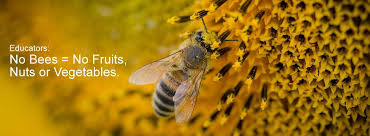
10 Oct 2019 HYN Himalayan Yoga Academy
According to the Earthwatch Institute, The BEES have been declared the most important living beings on this planet. Many wildlife experts and scientist consider BEES to be on the long list of endangered species. In the past few years, 90% of the BEE population has disappeared … making them Extremely Endangered! The uncontrolled use of pesticides, deforestation and lack of flowers are the main reasons of their extinction.
Its sting hurts a lot, but if they were to disappear, it would hurt much more.
Here’s why BEE ARE THE MOST IMPORTANT being on Earth:
- 70 % of the world’s agriculture depends exclusively on BEES.
- Pollunation of Plants for reproduction happens thanks to BEES.
- BEES are the only living beings who do not carry any type of pathogen (a bacterium, virus, or other microorganism that can cause disease)
- BEES are crucial to have around for Earth’s ecosystems.
The agriculture of the world depends on 70% of these insects, to put it more clearly and directly, we could say that 70 of 100 foods are intervened in favor of bees. Also, the pollination that the bees make allows the plants to reproduce, of which millions of animals feed, without them, the fauna would soon begin to disappear. The honey produced by bees, not only serves as food but also provides many benefits to our health and our skin.

The Bees around the world have disappeared by up to 90% according to recent studies by different researchers. The reasons are different depending on the region, but among the main reasons are massive deforestation, lack of safe places for nests, lack of flowers, use of uncontrolled pesticides, and changes in soil, among others.
How to help the BEES thrive and keep Earth’s ecosystems in working order:
- Stop using Deadly Pesticides
- Promote Natural Agricultural alternatives
- Monitorize BEES Health & Welfare
According to a quote attributed to Albert Einstein, If the bees disappear, humans would have 4 years to live.
